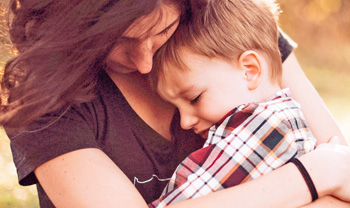Help! I'm all over the place
© Sue Bradshaw for Auckland Therapy Blog, 21 May 2020
I don't know how I feel
Big feelings can rise to the surface.
 Being
mindful of strong emotions
Being
mindful of strong emotions
When restrictions are placed on us, such as needing to isolate within our family bubble, or return to school and work while still keeping a distance from others, big feelings can rise to the surface. Learning how to experience strong emotions without either freaking out, lashing out, or shutting down is a real challenge.
Our emotions are information
The most important capacity for all of us to work on is recognising what we are feeling at the time we are feeling it. This is the basis for learning to control the outcome of these surges of emotion. Our emotions are information. The tricky part is to work out what their message is. Here are some examples. Sadness tells us we're missing someone or something. Anger helps us identify a real or perceived injustice. Fear tells us to check for danger. Jealousy flares up when we want something or someone, someone else has. These are all normal and common experiences.
Helping your kids
We often rush into teaching children what to do in response to these different emotions. Here I am suggesting that we're forgetting a crucial step when we do this. First children need to know what they are feeling at the time they are feeling it. Otherwise the chances of later regrets for rash actions are high. You can't make a useful plan without knowing the reason for making the plan in the first place! Responding to anger may require assertiveness, while if sadness is the driving force asking for a hug and reassurance may be a more useful plan. Of course feelings aren't neat and tidy and there's often quite a mishmash to sort through, but you get the picture.
The emotional detective
So how do we teach children to notice all their messy feelings, let alone then respond to these in appropriate ways?! This requires some detective work from the adults around them. Notice your child's body language, facial expressions, and behaviour. Are there patterns for different underlying emotional experiences? Does your child take on a certain look when their brother, or sister, pushes past them one too many times? Do they become quiet or act silly after talking to Nana and Poppa online?
The benefits of naming feelings
The next step is to name the feeling or feelings you think they might be experiencing. (eg. You seem a bit sad. I wonder if you're missing Nana and Poppa.) Many parents worry that this might be telling a child what to feel but I've found over the years that children very quickly tell you if you guess wrong! The benefits of showing your child that you're noticing more than just what's on the surface, i.e.. their behaviour, far outweigh some near misses every now and again. There are several benefits.
- kids feel understood when their emotions are named
- they learn to put names to their feelings, developing self-understanding in the process
- lastly, but certainly not least, they can learn to respond rather than react, moving from 'knee-jerk' to thoughtful action
Though don't expect this all at once. There will be a lot of bumps along the road as children gradually learn these skills.
Getting help
My focus is helping families and individuals find a way through difficult times. This may be a short term intervention of 1 to 4 appointments or longer. I am providing a mix of online and in person consultations and therapy for children, teenagers and adults.
